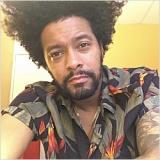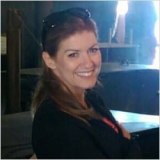Find a Therapist near Brooklyn, NY
| Prev | Next |
Not finding the right therapist? Search for therapists in Brooklyn Heights, New York City, or Nyc to expand your search.
Find a Therapist in Brooklyn with GoodTherapy
It’s normal to experience mental health issues and relationship problems. Talking to a licensed therapist can help. Therapy can teach you more about yourself and your mental health concerns in a healing way. Many therapies are evidence-based and have been proven effective.
Since 2007, GoodTherapy has helped people like you connect with ethical, compassionate counselors and therapists. The therapists listed above, who practice therapy in Brooklyn, are trained to protect client confidentiality and privacy. In keeping with our high membership standards, these mental health professionals are also committed to eliminating the stigma that keeps many people from seeking help.
If you are looking for a specific type of therapist, you can search for marriage or couples counseling in Brooklyn or find a child psychologist or family therapist in Brooklyn. You can also connect with Brooklyn therapists who specialize in treating anxiety or depression. In addition, some therapists provide group therapy, which is typically a therapist-led session with multiple people.
Beliefs about how much therapy costs may deter some people from finding a therapist. It’s a good idea to contact therapists you’re interested in and ask about insurance, sliding-scale fees, payment plans, and other options to stay within your budget.
Rest assured there are qualified therapists in Brooklyn who can treat a variety of concerns, including family conflict, relationship issues, anxiety, or depression. With our directory, the right therapist is easy to find.
List Your Practice on GoodTherapy
Are you a therapist or mental health professional looking for new ways to get referrals and market your practice in Brooklyn? Keeping up to date with professional requirements and increasing your online presence are just two of the many benefits of joining GoodTherapy. Start connecting with clients and earning online continuing education credits today!
Brooklyn, New York is the second largest of New York City's five boroughs. Located in Kings County, on the western end of Long Island, the city is connected to Manhattan by the Brooklyn Bridge. But the 2,565,600 residents1 who call the borough home do not need to leave the area to experience arts or entertainment. The Brooklyn Academy of Music, Prospect Park, and Coney Island are just some of the attractions that draw thousands of visitors to the area every year. Many more come to take in a Nets basketball game or attend one of several universities in the borough, among which are Long Island University, the Brooklyn Law School, and the Polytechnic Institute of NYU.
Mental Health Statistics for Brooklyn
The rates of hospitalization related to mental health and addiction are higher in Brooklyn than New York City at large. In Brooklyn, there are 734 psychiatric hospitalizations for every 100,000 residents. In NYC, this rate is only 684 per 100,000. Brooklyn sees 921 drug-related hospitalizations per 100,000 residents. This rate drops down to 908 per 100,000 for NYC.
In 2012, Brooklyn accounted for one third of drug-related hospitalizations for NYC youth ages 15-24. Between 2012 and 2013, 22 Brooklyn youth in this age group died of drug overdose. Half of these deaths involved heroin.
References:
- Drug use related mortality, morbidity, and prevalence among New York City youth (ages 15-24). (2015, September 29). Retrieved from https://www1.nyc.gov/assets/doh/downloads/pdf/mental/youth-drugs-fact-sheet.pdf
- King L., Hinterland K., Dragan K. L., Driver C. R., Harris T. G., Gwynn R. C.,...& Bassett M. T. (2015). Community health profiles 2015: Brooklyn community district 4: Bushwick. Retrieved from https://www1.nyc.gov/assets/doh/downloads/pdf/data/2015chp-bk4.pdf









